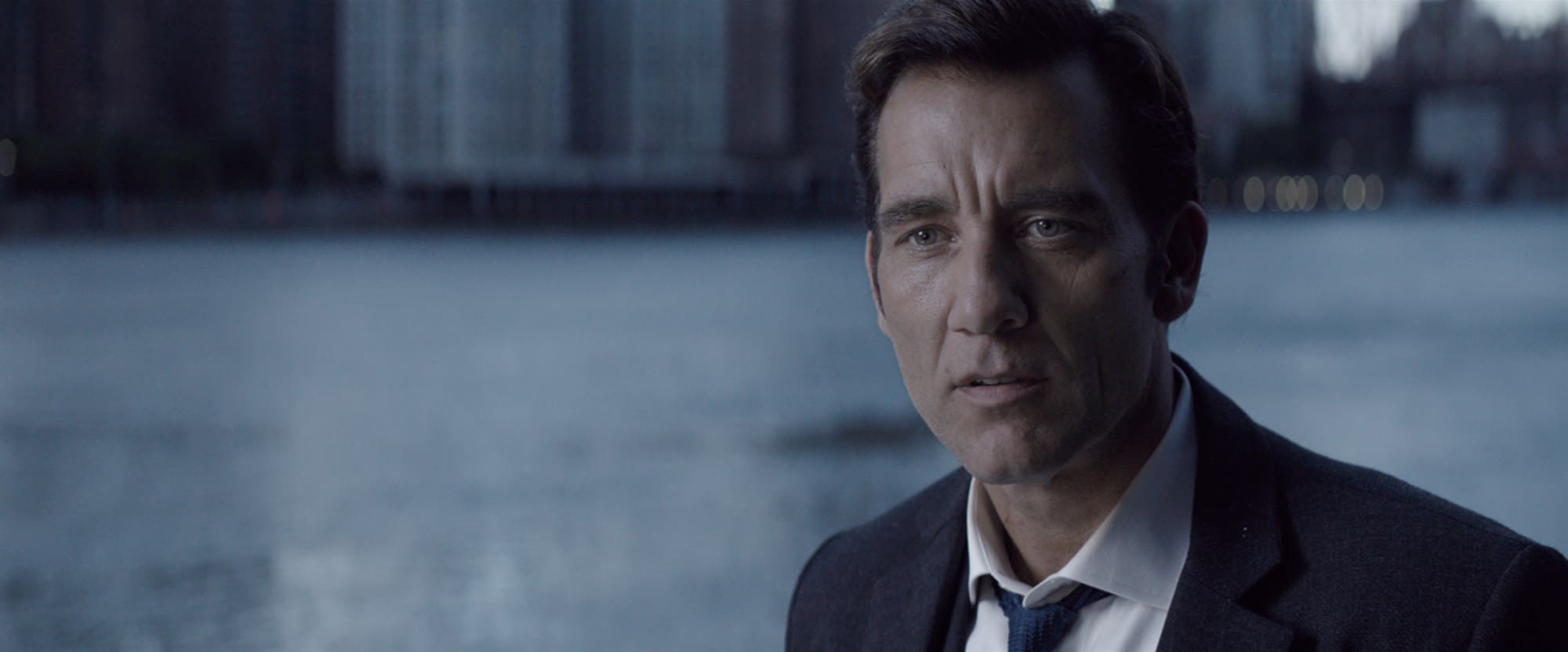
It seems director Andrew Niccol took his screenplay for The Host and then married it to Black Mirror’s eye-tech episodes to create the new Netflix film, Anon.
In this perilous sci-fi look at high-tech eyes, Niccol creates a world where people rely on their eyes more than they do now. They use their upgraded sight for video chats, to stream memories, share sightings, play video games, receive adverts and scan faces.
The story centers around an investigator, Sal (Clive Owen), looking into a series of mysterious homicides that’ve been made to look like suicides through artificial reality simulation and video editing.
In this world, video editing is considered an illegal form of human hacking because authorities use personal accounts (video recordings) to solve crimes. What’s even more problematic is that the murderer’s anonymity is irking the hell out of the government.
Black Mirror’s interpretation of eye software took a very humanizing and practical view of the impact of it. But when I compare the series to Anon – I can’t help it since I’ve seen both – Niccol’s take on this kind of reality is from the perspective of simply observing people’s memories.
It makes sense since it follows an investigator and a human hacker, but the context for their observations is a bit weak and too simple. It’s like Niccol sees this tech as a tool that makes humans more robotic and less human; so he spends time showing off how the eyes can access the tech instead of how the tech fully impacts the world the tech operates in.
I wasn’t into it whatsoever.
What’s even more frustrating is that Anon’s characters are all supposed to be apex members in their field and in their community. However, the film spent most of the time highlighting their inefficiencies using the eye tech.
Right after the climax of the film when the suspect (Amanda Seyfried) becomes aware that she is being played, and Owen’s Sal faces virtual attacks from the hacker — he and his colleagues come up with the stupidest decision ever. Sal is literally facing bouts of known augmented reality, yet he’s still allowed to carry a gun, drive a car and walk around without an officer escorting him around town. Seriously?!? The man just told his own peers that a hacker is messing with his eyes and authorities decide to scale back? That’s unbelievable.
Anon lost a few more points with its voyeuristic portrayal towards women. Women had most, if not all, nude shots (recorded and not recorded) while men were clothed modestly. Niccol could have been trying to empower the female body, but I doubt it because it looked very misogynistic.
The weak actions of the characters, the misogyny and voyeurism, and the limited portrayal of these characters lead to how uninterested I am in Anon. What’s more, Niccol’s subtle and out-dated attempts to address prejudices didn’t help at all.
Rating: 4 out of 10

